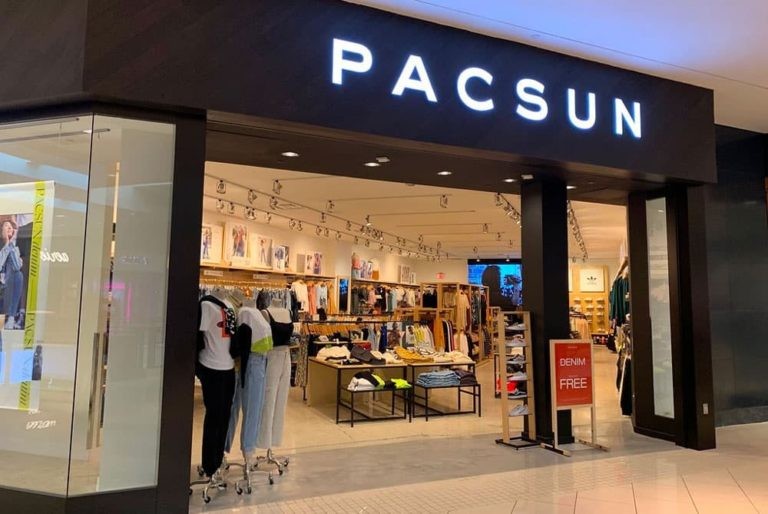Californian lifestyle fashion brand, Pacsun, doubled its ship completes by better anticipating online demand and intelligently leveraging its stores as ecommerce fulfilment centres, partnering with antuit.ai, a leader in AI-powered SaaS solutions for consumer products and retail insights and now part of Zebra Technologies.
Founded in 1980 in Anaheim, California, PacSun’s founding mission is to deliver an exclusive collections of brands and styles to a community of inspired youth, to create a leading lifestyle brand for the next-generation consumer. It now produces exclusively curated collections, partnering and collaborating with globally coveted 3rd party brands, including adidas, Champion, Converse, Fear of God Essentials and The North Face, as well as its own Pacsun branded fashion ranges, to create unique styles that allow shoppers to express themselves. With a strong commitment to supporting self-expression amongst its community of younger shoppers, it launched its PacCares initiative in 2020 to support and partner with companies that matched its values of good mental health, diversity and equality.

With 330 bricks-and-mortar stores globally, its digital fashion offering, available in both the UK and US, has experienced fast-growth, and now accounts for 40% of its sales. But this fast ecommerce growth didn’t come without challenges.
With online demand growing exponentially, digital revenues overtook Pacsun’s overall sales and the incremental fulfilment costs associated with each online order was beginning to put pressure on margins. Meanwhile, Pacsun’s online business was seeing significant spikes in demand, particularly ahead of Christmas trading, that meant it not only needed to optimise inventory across its channels to meet this demand, but intelligently allocate stock to lessen the impact of supply chain disruption, shipping costs and cost-intensive split-shipping of multi-item baskets, that make up over 50% of Pacsun’s ecommerce orders, during fulfilment.
“Pacsun wanted to proactively manage the costs created by the increase in our online sales,” said Mike Relich, Co-CEO of Pacsun. “By adding more intelligence to our allocation processes with antuit.ai, we allocated inventory for the omnichannel demand and minimised split shipments.”
Using antuit’s AI-powered solution, Pacsun was able to predict, shape and fulfil based on demand, building wall-to-wall granular demand to optimise fulfilment and allocation. Antuit.ai’s Forecasting, Allocation and Replenishment solution is an omnichannel-aware suite that employs leading-edge AI and machine learning to anticipate consumer demand at the most granular levels across all fulfilment channels by leveraging internal and external data to evaluate all demand drivers.
By triangulating stock availability levels, picking and packing costs, shipping costs based on the location and proximity to the customer, markdown liability (fulfilling from inventory with low sell-through items or locations to avoid future markdowns rather than allocating from stock that can be sold at full price) and probability of returns rates, it could choose the best fulfilment option to meet the needs of the shopper, whilst meeting the operational requirements of the business.
After omni-based allocation, Pacsun was able to reduce the median number of miles needed to fulfil an order by -96.7%, helping it double the number of ship completes to significantly reduce fulfilment costs and improve the speed of delivery, whilst giving the shopper the best customer experience. It also resulted in more accurate forecasting for Pacsun store and online demand, and a balanced inventory between stores and its ecommerce distribution centres, delivering higher sell-through rates, reduced markdowns and improved margins.
“To be customer-centric and profitable in today’s omnichannel-world, retailers must optimise inventory by placing it in the right places in their network, at the right time,” Yogesh Kulkarni, Co-CEO of antuit.ai. “To do so requires leveraging granular forecasting for online fulfilment and store sales demand, while taking returns into account.”



















